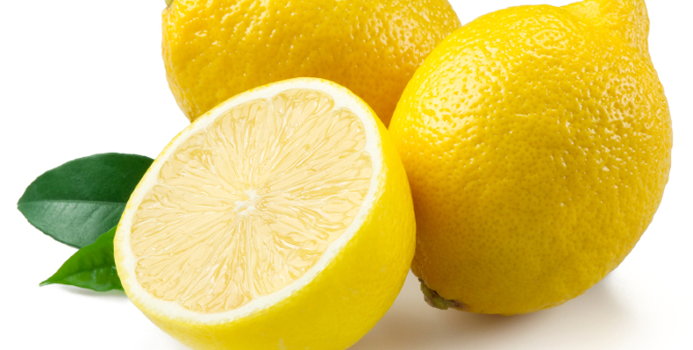Most people do not eat lemons whole but they are a nutritious fruit with many health benefits and an important ingredient in many drinks and dishes. Although its season peaks in the summer months, lemons are generally available year-round.
Nutrients and Health Benefits
Lemons are an excellent source of vitamin C. They are also a very good source of potassium, calcium, fiber, and vitamin B6. Also present in lemons are iron, magnesium, riboflavin and thiamin. Lemons are low in saturated fat and very low in sodium and cholesterol.
The high Vitamin C content in lemons offers numerous health benefits. It helps to strengthen the immune system and protect you from the flu, colds and ear infections. Vitamin C has also been shown to slow down the development of heart disease and reduce symptoms of arthritis.
Lemons contain flavonoids with anti-cancer properties. In animal research and lab tests using human cells, limonoids, which are a compound in lemons, have shown to battle cancers such as breast, stomach, colon, skin and lung cancer.
Selecting Lemons
Lemons are oval-shaped fruits with a yellow outer peel. There are two types of sour lemons: the Lisbon and the Eureka. The skin of the Eureka has a rougher texture. The Lisbon's skin is smoother. Lemons also come in sweet varieties, one example is the Meyer.
In general, as fruits ripen, their antioxidant capability increases. When choosing lemons, select them when they are ripe. Lemons with a thinner skin have more flesh and more juice. The heavier the lemon is the more juice and flesh it contains. Lemons that lean toward green colors are usually more acidic and unripe. If a lemon is dull in color, wrinkled or has patchy skin, it is probably old.
Using Lemons
You will get more juice out of a lemon if you juice it at room temperature and/or warm it up by placing it in a warm bowl of water. Lemons can be used while cooking to bring out the flavor of meat, chicken or fish. Those wanting to decrease their salt intake can squeeze lemons on their food, adding flavor and acting as a salt substitute.
Making lemonade can be a healthy and delicious way to get the benefits of lemons. It is a simple drink to make. Simply squeeze the lemon into water and add the sweetener of your choice. Squeezing lemon juice into salad or fruit juice is also a good way to get lemons into the diet.
Many sore throat and cough remedies contain lemons. When you are dealing with the cold or flu, lemons can be squeezed into chicken soup or herbal tea to speed up recovery time.
Lemons have also been known to lighten freckles and acne scars. Additionally, lemons squeezed into water can help to freshen breath and kill bacteria.
Lemons also have a long list of uses for cleaning and sanitizing in the home. For example, they can be squeezed into water and placed in the microwave to deodorize it. Alternatively, lemon juice squeezed into water and boiled on a stove can change the aroma of the home and add humidity.



